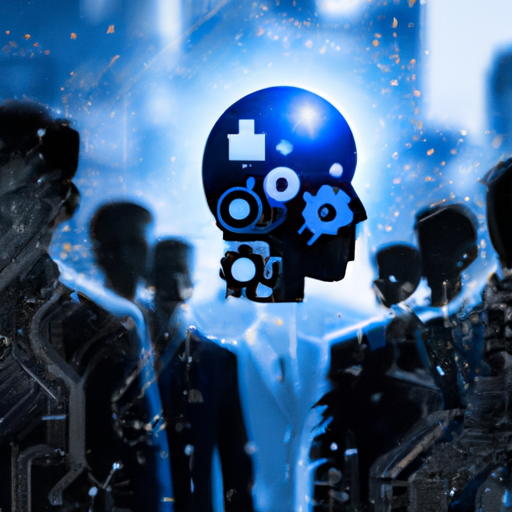The future of Artificial Intelligence in business

The Future of Artificial Intelligence in Business
Introduction
Artificial Intelligence (AI) has rapidly transformed various aspects of our lives, and its presence in the business world is no exception. As AI continues to advance, it is reshaping the way businesses operate, enabling them to become more efficient, make better-informed decisions, and deliver enhanced customer experiences. This article explores the current state of AI in business and provides insights into its future implications.
AI Revolutionizing Business Operations
AI has the potential to revolutionize business operations by automating repetitive tasks, streamlining processes, and increasing overall efficiency. Machine learning algorithms can analyze vast amounts of data and identify patterns and trends, allowing businesses to gain valuable insights and make data-driven decisions. By automating routine tasks, employees can focus on more strategic and creative endeavors, leading to increased productivity.
Data-Driven Decision Making
One of the significant advantages AI brings to businesses is its ability to process and analyze immense volumes of data. This enables organizations to make data-driven decisions, improving the accuracy and speed of decision-making processes. AI-powered analytics tools can interpret complex information and generate actionable insights, helping businesses identify opportunities, optimize operations, and mitigate risks.
Improved Customer Experiences
AI plays a vital role in enhancing customer experiences across various industries. Chatbots powered by natural language processing (NLP) algorithms provide instant and personalized customer support, improving response times and satisfaction levels. By analyzing customer data, AI algorithms can also provide personalized product recommendations, tailoring offerings to individual preferences and increasing customer engagement.
Challenges and Concerns
While AI offers numerous benefits, it also poses challenges and concerns that businesses must address. One critical concern is the ethical use of AI, ensuring that algorithms are free from biases and do not compromise privacy rights. Moreover, the potential displacement of jobs due to automation raises questions about workforce readiness and reskilling programs. Despite these challenges, understanding and mitigating risks will be essential to harness the full potential of AI in business.
Future Implications of AI in Business
Increased Adoption of AI Technologies
The future of AI in business looks promising, with increased adoption of AI technologies expected across industries. As businesses witness the benefits of AI in enhancing operations and customer experiences, there will be a greater willingness to invest in AI solutions. This growing demand will drive advancements in AI technologies, making them more powerful, accessible, and affordable for businesses of all sizes.
AI-Powered Automation
Automation powered by AI will continue to reshape business processes. As AI algorithms become more sophisticated, they will be able to handle complex tasks that previously required human involvement. From manufacturing to supply chain management, AI will automate processes end-to-end, reducing human error, improving efficiency, and reducing operational costs.
Human and AI Collaboration
Rather than replacing human workers, AI will increasingly work alongside them, augmenting their capabilities. Collaborative robots known as cobots will become commonplace in industries like manufacturing and healthcare, working side by side with human workers to improve efficiency and productivity. This partnership between humans and AI will create new job roles that require a blend of technical and interpersonal skills.
Enhanced Cybersecurity
As businesses become more reliant on AI technologies, there will be an increased emphasis on enhancing cybersecurity measures. AI algorithms will need to be developed to combat cyber threats, identify vulnerabilities, and respond to attacks more efficiently. Additionally, AI-powered tools will help organizations detect anomalies and patterns in real-time, enabling proactive threat prevention and protecting sensitive data.
Conclusion
The future of Artificial Intelligence in business is undoubtedly bright. AI has the potential to revolutionize business operations, improve decision-making processes, and enhance customer experiences. While challenges and concerns regarding ethics and job displacement exist, understanding and proactively addressing these issues will enable businesses to harness the full potential of AI. With increased adoption of AI technologies, automation, human-AI collaboration, and enhanced cybersecurity measures, businesses will unlock new opportunities and pave the way for a more efficient and prosperous future.
* The post is written by AI and may contain inaccuracies.




